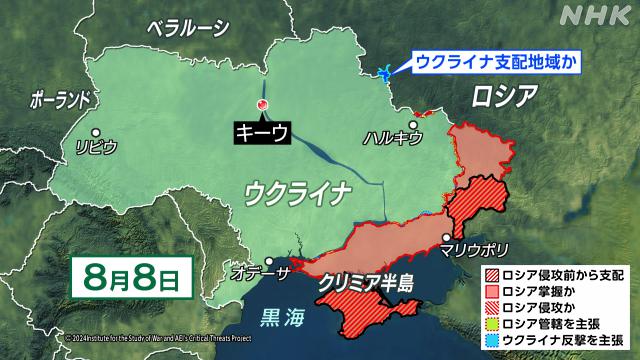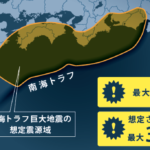ウクライナ情勢を学ぶ上で、以下の基本的な英単語やフレーズが役立ちます。これらの用語は、ニュースや報道でよく使用されるため、理解を深めるのに便利です。
基本的な英単語とフレーズ
- Conflict (紛争)
- “The conflict between Ukraine and Russia is ongoing.”
- War (戦争)
- “The war in Ukraine began in 2014.”
- Invasion (侵略)
- “The invasion of Ukraine by Russian forces escalated in 2022.”
- Occupation (占領)
- “Russian troops have occupied several regions in Ukraine.”
- Sanctions (制裁)
- “Economic sanctions have been imposed on Russia by various countries.”
- Ceasefire (停戦)
- “A ceasefire agreement was reached but has not always been upheld.”
- Peace Talks (和平交渉)
- “Peace talks between Ukraine and Russia aim to end the conflict.”
- Humanitarian Crisis (人道的危機)
- “The war has led to a significant humanitarian crisis.”
- Refugees (難民)
- “Many Ukrainians have become refugees due to the ongoing conflict.”
- Diplomacy (外交)
- “Diplomatic efforts are essential to resolving the conflict.”
- Military Aid (軍事支援)
- “Various countries are providing military aid to Ukraine.”
- Territorial Integrity (領土の一体性)
- “Ukraine’s territorial integrity is a central issue in the conflict.”
- Occupation Forces (占領軍)
- “Occupation forces have been reported in contested areas.”
- Siege (包囲)
- “Certain cities in Ukraine have experienced sieges.”
- Conflict Zones (紛争地帯)
- “The eastern regions of Ukraine are primary conflict zones.”
- Diplomatic Relations (外交関係)
- “Diplomatic relations between Ukraine and Russia have been strained.”
- Sovereignty (主権)
- “The sovereignty of Ukraine is a key issue in international discussions.”
- Negotiations (交渉)
- “Negotiations are ongoing to find a peaceful resolution.”
- Occupation (占領)
- “The term ‘occupation’ refers to the control of territory by foreign forces.”
- Escalation (エスカレーション)
- “The situation has seen an escalation in recent months.”
これらの用語を覚えておくことで、ウクライナ情勢についての理解が深まります。ニュース記事や専門家のコメントを読む際に、これらの用語が役立つでしょう。
ウクライナ情勢についての基本的な情報
ウクライナ情勢についての基本的なことを、日本語と英語で併記して説明します。
1. 背景 / Background
- 日本語: ウクライナは東ヨーロッパに位置する国で、ロシアと国境を接しています。2014年、ロシアがクリミア半島を併合し、ウクライナとの間に緊張が高まりました。
- English: Ukraine is a country in Eastern Europe that shares a border with Russia. In 2014, Russia annexed Crimea, which increased tensions between Ukraine and Russia.
2. 紛争の発端 / Origins of the Conflict
- 日本語: 2014年、ロシアがウクライナのクリミア半島を占拠し、その後ウクライナ東部で親ロシア派の武装勢力が活動を開始しました。これが長期的な紛争の始まりとなりました。
- English: In 2014, Russia occupied Crimea, and pro-Russian armed groups began activities in Eastern Ukraine. This marked the beginning of a prolonged conflict.
3. 主な関係者 / Key Parties
- 日本語:
- ウクライナ政府: ウクライナの中央政府で、領土の一体性と独立を守ることを目指しています。
- ロシア: 軍事的な介入を行い、親ロシア派勢力を支援しています。
- 親ロシア派: ウクライナ東部の地域で活動する武装勢力で、ロシアの支援を受けています。
- English:
- Ukrainian Government: The central government of Ukraine, aiming to maintain territorial integrity and independence.
- Russia: Conducted military interventions and supports pro-Russian factions.
- Pro-Russian Separatists: Armed groups in Eastern Ukraine, receiving support from Russia.
4. 現在の状況 / Current Situation
- 日本語: 戦闘は続いており、多くの人々が難民として避難しています。国際社会は和平に向けた努力を続けています。
- English: Fighting continues, and many people have fled as refugees. The international community is making efforts towards peace.
5. 国際的な対応 / International Response
- 日本語: 国際社会はロシアに対して経済制裁を課し、ウクライナに対して支援を行っています。和平交渉も行われていますが、解決には時間がかかるとされています。
- English: The international community has imposed economic sanctions on Russia and provided support to Ukraine. Peace negotiations are ongoing, but resolving the conflict is expected to take time.
このように、日本語と英語の両方で情報を確認することで、ウクライナ情勢についての理解を深めることができます。







ウクライナ情勢を学ぶ上で大切な基本的な英単語